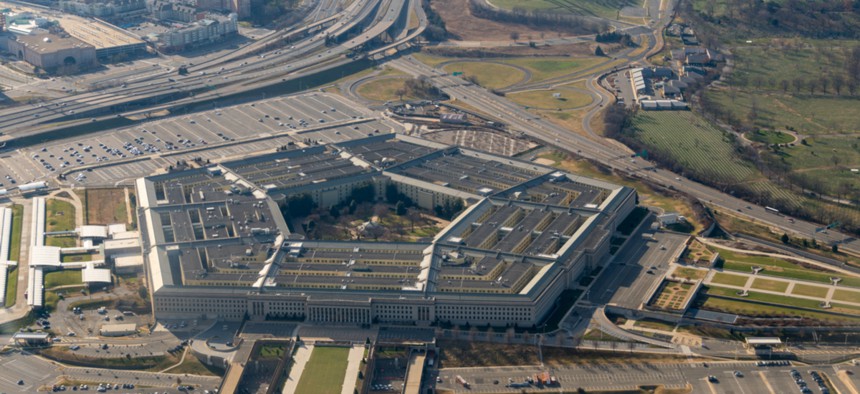Pentagon Lags on Policing Lowest Price, Technically Acceptable Contracts

Austin Nooe/Shutterstock.com
Some contracting officers may not be applying the required criteria, GAO warns.
Two years after Congress required clearer criteria on when the Defense Department could issue lowest price, technically-acceptable contracts, Pentagon contracting officers still lack adequate written guidance, the Government Accountability Office concluded in an audit released last week.
Under the fiscal 2017 National Defense Authorization Act (Section 813), the department is required to amend the Defense Acquisition Regulation Supplement to reflect eight criteria that justify the sometimes-controversial use of LPTA’s for awards of $5 million or more. (The requirements governing their use were expanded in the fiscal 2018 version.)
Though this type of contract can be efficient and quick for obtaining supplies and services, competing contractors often complain that the vehicle can short-change quality.
GAO’s examination of 46 LPTA contracts and awards culled from a sampling of 172 contracts from January to November 2018 concluded that “most of the contract files we reviewed did not include a written justification for the use of the LPTA process.”
The report noted that 26 percent of Defense contracts in fiscal 2017 were competitively awarded using the LPTA process for buying such items as equipment, fuel, information technology and construction services.
The 2017 law required the department to write into the regulations the eight criteria for using LPTAs. They include performance objectives; measures and standards for accepting bidders’ offers; an explanation of why proposals that exceed the minimum lack value; the unlikelihood that new technical approaches in the future would alter that calculus; and that proposed technical approaches could be evaluated “with little or no subjectivity.” Additionally, the rationale for accepting an LPTA must be in writing.
An in-depth review of 14 of the contracts, including interviews with contracting officers, showed that five of the eight criteria had been met.
In its report to lawmakers on the Armed Services and Appropriations panels, GAO recommended that the Pentagon, in revising the regulations, “clarify how contracting officers are to determine if a good is expendable in nature, nontechnical or have a short life expectancy or shelf life, and how they are to consider if the lowest price reflects full life-cycle costs, including for operations and support for services as well as products. Absent additional direction,” the report warned, “contracting officials across DOD may not understand how to consistently apply these criteria when using the LPTA process.”
Specifically, GAO recommended that the Defense secretary ensure that the director of defense pricing and contracting (a position held by Shay Assad) address how contracting officials are interpreting the eight criteria to assure coverage of short-shelf-life goods and a product’s full life-cycle costs in an operational environment.
Pentagon managers agreed, and said they expect to have the regulations revised by the end of fiscal 2019.
On Friday, the Professional Services Council, which represents 400 contractors, called on the Pentagon “to issue long overdue regulations restricting the use of lowest price technically acceptable source selection criteria for Pentagon services contracts."
“As directed by Congress, DOD needs to prioritize, finalize, and issue the required regulations as expeditiously as possible,” said PSC executive vice president and counsel Alan Chvotkin in a statement.
The contractors group had long backed limits on LPTA and is currently pushing similar requirements for civilian agencies in the fiscal 2019 defense bill.
NEXT STORY: FCW insider: Nov. 20



